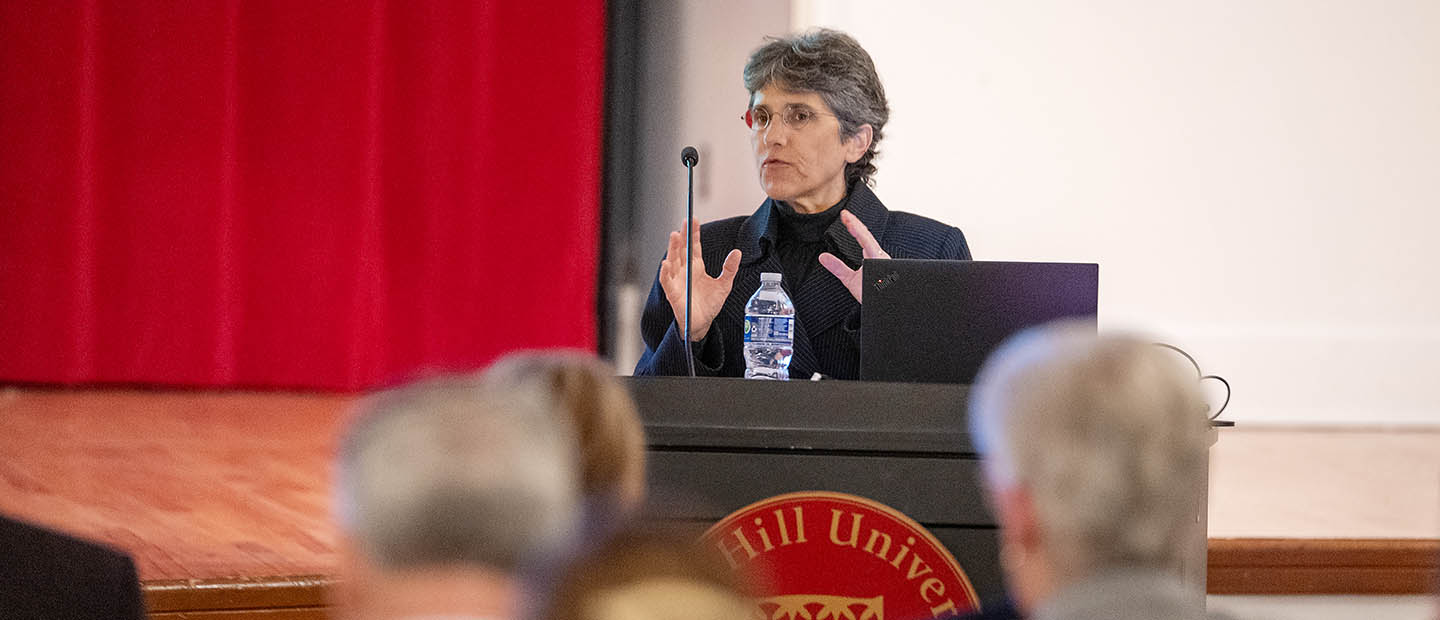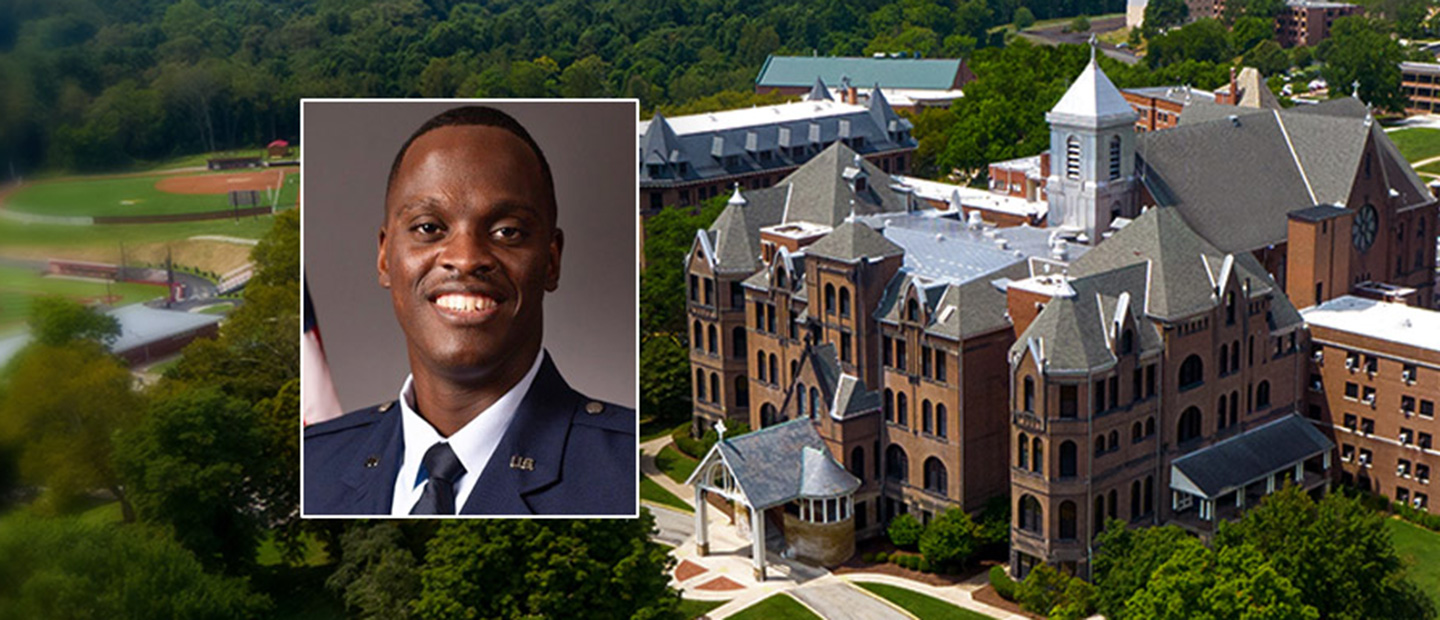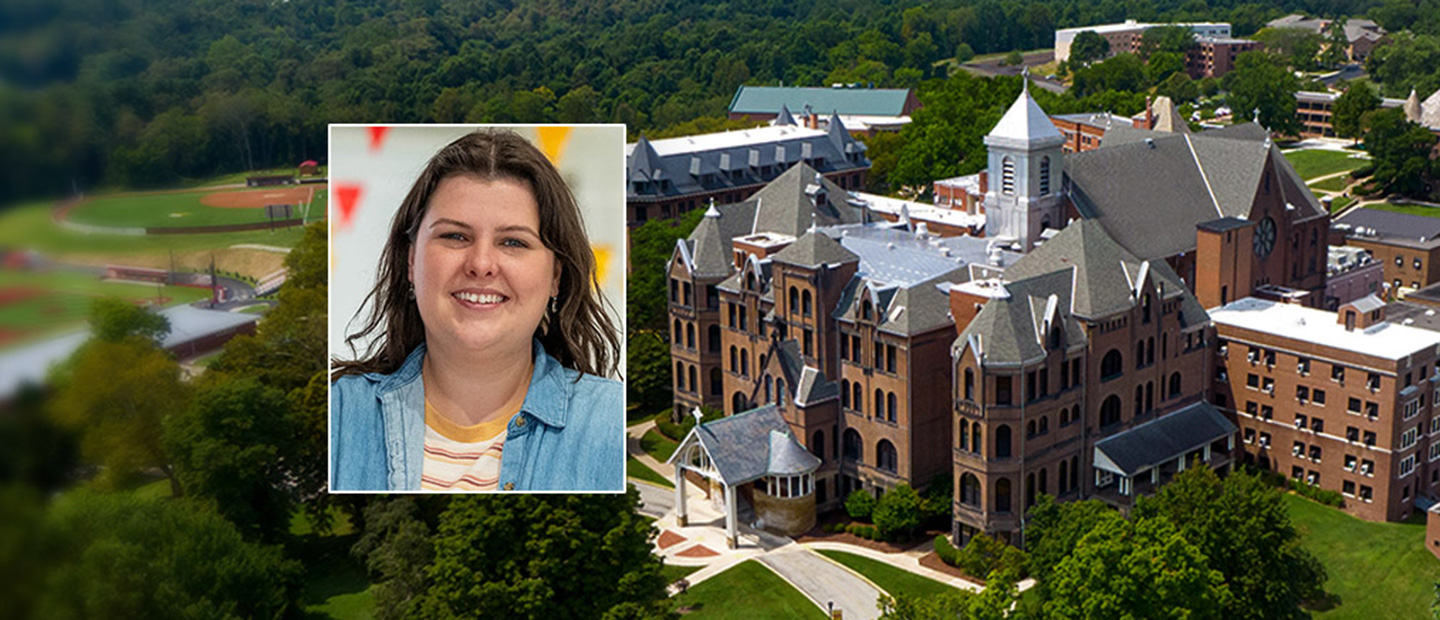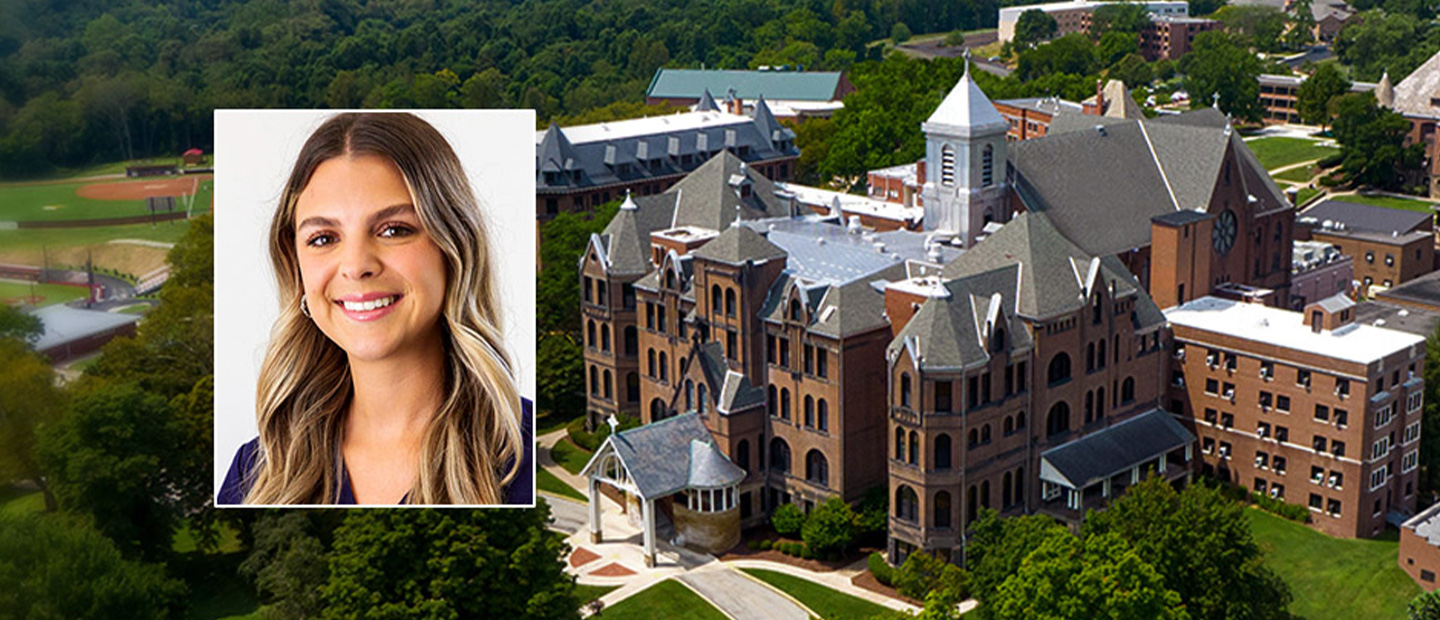Seton Hill Students Represent Cambodia at Model United Nations Conference
For eight months, five Seton Hill University students immersed themselves in the culture and politics of the southeast Asian nation of Cambodia in order to properly represent the country at the recent Model United Nations Conference in New York City.
The students Emily Raffay, a sophomore physician assistant major from Olmsted Township, Ohio; Lindsey Angell, a senior criminal justice major from Portland, Ore.; Jamie Knopsnyder, a sophomore political science major from Garrett, Pa.; Matthew Comito, a senior business administration student from Irwin, Pa.; and Jonathan Beskid, a senior political communication major from North Huntingdon, Pa.; tackled complex issues such as carbon emissions, nuclear technology, and ending poverty and inequality all from the perspective of delegates of Cambodia.
“The Model United Nations experience provided Seton Hill students with a global perspective on the need for multilateral cooperation in international affairs, domestic policy and day-to-day life,” said Roni Kay O’Dell, assistant professor of political science and Model UN advisor. “Seton Hill students learned how to represent the interests of Cambodia and how to work with others to form a consensus on global problems. They truly understood the value of diplomacy in order to accomplish goals that meet the needs of all.”
The Model United Nations held each spring at the United Nations Headquarters in New York City is a simulation of the United Nations in which college students practice diplomacy, communication, negotiation, research and writing skills. The simulation lasts four days and mirrors the United Nations committees that meet in New York every fall to collaborate and coordinate over issues of international concern.
Seton Hill students represented Cambodia on five different Model UN committees including General Assemblies 1, 2, and 3 as well as the International Atomic Energy Agency and the United Nations Environment Agency.
Inside committee sessions, delegates set an agenda prioritizing three different issues facing their specific committee, debated on the issues utilizing proper procedural motions, and then worked with the other delegations to draft and approve resolutions.
Matthew Comito worked on resolutions focused on implementing the Paris Agreement on climate change.
“Cambodia only ratified the Paris agreement two weeks before we went to the Model United Nations,” Comito said. “It was complicated to collaborate with other delegates who wanted to propose deforestation resolutions since Cambodia relies heavily on their lumber industry. Our resolution focused on a Carbon Emissions Cap. Smaller countries would not produce as much carbon emission as a large country would. The resolution would allow larger countries to buy smaller countries remaining emissions amount, providing the opportunity for a country to go over their cap level while offering needed financial assistance to developing nations.”
He added, “The Model UN experience was phenomenal. We worked with other students from all over the world and learned so much about the process of the United Nations as well about other countries. I will never forget the lessons I learned, the people I met, and the friends I made. It is truly a small world.”
“While the committee sessions were long, stressful and difficult at times, attending the Model UN was a very rewarding experience,” said Jamie Knopsnyder, who worked on resolutions dealing with poverty and inequality in non-industrialized nations. “I enjoyed talking to other delegates from all over the United States and around the world and working in the actual United Nations headquarters where real-life decisions are made.”
“I participated in Model UN in high school for two years, but I was amazed at what a different experience this was at the college level,” said Lindsey Angell. “I feel very fortunate that I was able to have this experience at least once while I was in college. I would definitely recommend this to anyone with an interest in international relations.”



